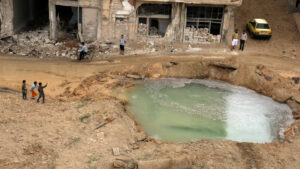Caught in the Crossfire: Surviving Violence in Sudan
I believe that peace can be achieved without resorting to war. War is a destructive force that causes immense suffering and loss of life, and often leads to long-term instability and ongoing conflict. Instead, peaceful negotiations and diplomacy should be pursued to resolve conflicts and establish lasting peace.
In the case of Sudan, it is important to address the root causes of the conflict, which include power struggles, economic inequality, and ethnic tensions. To achieve lasting peace, it is essential to involve all stakeholders, including civil society organizations and marginalized groups, in the peace process. This can help to build trust and foster a sense of ownership and accountability among all parties involved.
In addition, external support from the international community can be crucial in promoting peace in Sudan. This could involve providing humanitarian aid and support for economic development, as well as diplomatic interventions to facilitate negotiations and promote peacebuilding initiatives.
As for the potential for a revolution in Sudan, it is certainly a possibility given the current state of unrest and violence in the country. However, it is important to remember that revolutions are often unpredictable and can lead to further instability and conflict. Therefore, it is essential to pursue peaceful and inclusive solutions to the current crisis in Sudan, in order to avoid further suffering and loss of life.
In conclusion, achieving peace in Sudan will require commitment and cooperation from all parties involved, as well as external support from the international community. By working together, it is possible to establish a sustainable peace that promotes human rights, economic development, and social justice for all Sudanese people.


